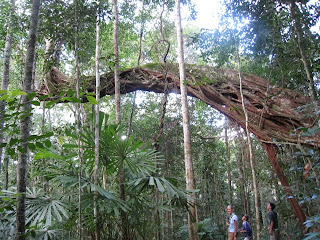
Another trip to India - and what a trip it was! Why India? The land of dirt and chaos, the Delhi belly, relentless touting, noise, pollution, and whatever else you may have heard or seen?
Because in India, nothing is as it seems.
On the surface, it looks one way, but look again, even a split second later, and the scene has changed. Look deeper, and you begin to see beneath the façade, to what India really is. India cannot be put into words, but it is the unspeakable which we are after. Those experiences that are indescribable, so deep, or so transcendent, that no words can do them justice. Just to begin to describe them takes away their luster. These experiences are what you find when you meditate, climb a mountain, do a fast, be with a guru, or, when you go to India.
Travel in India requires patience, fortitude, a sense of adventure and street smarts. I have been there numerous times, and I will catch my self daydreaming that I have it figured out(as if we ever could figure it all out) It is then that India throws you the best curveballs. Its not just having a train cancelled, or the bank teller close his window (after you stood in line for 2 hours) for his 11 am chai break. We are talking about the real India, the spiritual fabric underneath all the chaos - the lotus flower in the mud. When you look deeper and tap into this layer of India, you really start to have some wild experiences. You ask yourself: did I just see that 5 year old holding a cobra. Did the boy sweeping the train compartment just stop, look deep into your eyes, and tell you: "your life is a mistake." Did that quote painted above the bus driver's compartment,"To live is to serve, to serve is to live", just answer all your questions? Where do find these hidden gurus and messages? All over, and where you least expect it - that is India. When you order a chai, pay attention, when you give a beggar 50 rupees, pay attention, when you strike up an unassuming conversation with a shop owner, pay attention, when you ride a bus, pay attention. Pay attention to the flower girls, the street cleaners, the jeep drivers, the sadhus, the scholars, and the bakers. Pay attention to the pan wallahs, and the rickshaw wallahs. You can sense where this energy is, and catch a glimpse of it too. It is everywhere and nowhere.
Maybe we need a concrete example. Take the Ganges river in Varanasi for example. On one hand, science has written it off as the most polluted septic river on Earth, complete with low oxygen counts and dying fish. And it is true that raw sewage spills into it every day. On the other hand, millions swim and bathe and renew their spirit in those waters everyday. They worship it, they sing about it, they bury their loved ones in its waters. They even drink it. And there are fish in it, and birds and frogs, and all sorts of life thriving. And when you stand there on the ghats, and look into that gray green water, you realize that its just water like anywhere else, and you wash and swim in it like anywhere else, and it makes you feel good on a hot summer day. And then you may even read that some other scientists have tested the waters, and that the Ganges processes biological waste 30 times faster than other rivers, and that its not septic, but carries a good amount of oxygen. The waters of the Ganges have indeed been touted as magical, they can cleanse a lifetimes of karma, and even release you from this samsara.


So which do you believe? What do you believe? India is full of these paradoxes and India is like a guru, she will tell you anything and everything you need to hear, if that is, you are ready to hear it or believe it. The more time you spend in the world, you begin to see how everything is in the eye of the beholder. You can choose what to believe, there are so many options. And yet, as we see in quantum physics, its not at all random, its all connected. An electron a million miles from its partner, "knows" which way to spin to conserve the laws of energy - how does it know? How does the taxi driver "know" what you most needed to hear about your life right at that perfect moment that you could hear it, and take it to heart? That is the mystique of India - the guru pops up everywhere, when you least expect it, and when you surrender. If you go searching up in the caves, out in the mountains, or deep in the temples, there is no telling what you may find. It doesn't seem to work that way. When we are in control, we are not in control. When we give up control, we gain the ultimate.
So, listen to the universe, it will tell you. You never need to beg and you never have to fear that you are lost, because the answers are all around us all the time. If you need some reassurance, make a pilgrimage to India.



























